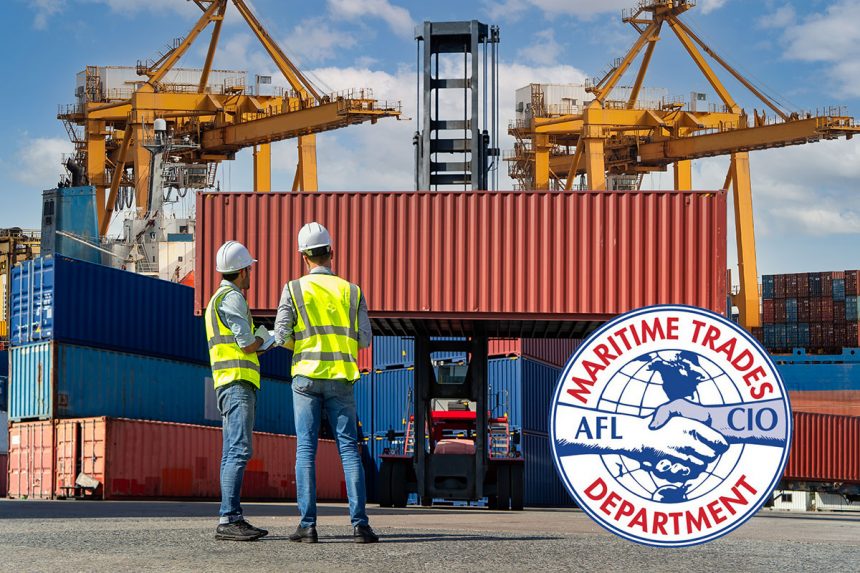
U.S. Representative Duncan Hunter (R-CA) wrote a column printed in a California newspaper to renounce a recent study by the Cato Institute that attacked the Jones Act, the nation’s freight cabotage law.
Hunter, who served combat tours in Iraq and Afghanistan as a Marine officer, wrote in the (Riverside, CA) Press Enterprise on August 19 that Cato Institute’s “arguments are misleading and far from compelling.”
The chair of the House Coast Guard and Maritime Transportation Subcommittee wrapped up his comments by stating, “If building the cheapest ship manned by the lowest paid workers is the end goal, then by all means, let’s get rid of the Jones Act. If you are like I am and you value good-paying U.S. jobs in American shipyards and the Americans who can man those ships in times of conflict, then the Jones Act is clearly worth protecting.”
Hunter was elected to Congress in 2008. He addressed the 2013 MTD Convention in Los Angeles. He received the Government Man of the Year Award in 2017 from the Maritime Port Council of Greater New York/New Jersey and Vicinity.
The following is Hunter’s complete response.
The Jones Act is worth protecting
The Press Enterprise (Riverside, CA)
August 19, 2018 Sunday
Byline: By Duncan Hunter
The CATO Institute recently opined in these pages about why I should stop supporting the Jones Act. Although I appreciate its attempt to debate this important issue, its arguments are misleading and far from compelling.
The Jones Act is a federal law requiring vessels traveling between two points in the United States to be U.S.-flagged, U.S.-crewed, U.S.-owned and U.S.-built.
Like many opponents of the Jones Act, the CATO Institute attempts to conflate this 100-year old law with the struggles of Puerto Rico’s economy. It repeats the same tired argument that the Jones Act is responsible for high prices and economic instability, going so far as to make the ridiculous implication that the Jones Act adds $5 to the cost of a pint of ice cream.
A recent economic study disputed these price discrepancies, but if concerns remain, it is important to recognize that Puerto Ricans have other options. Most of the ships that call on Puerto Rico are foreign-flagged and current law allows them to deliver as many goods from foreign ports as Puerto Ricans can consume. A 2013 Government Accountability Office Study failed to conclude that removing the Jones Act would benefit Puerto Rico and, in fact, acknowledged that the regulation provides a number of advantages. Other studies have found that the Virgin Islands — about 100 miles from Puerto Rico — has no Jones Act requirement but has higher shipping prices than Puerto Rico from the mainland.
The reality is that the Jones Act does not contribute to Puerto Rico’s problems and will not despite how many times the CATO Institute makes the same misleading claims. Regardless, I want to explain why I support this important law.
The Jones Act was passed in the wake of World War I to ensure that our country had the necessary pool of shipyards, welders and sailors needed to mobilize in times of conflict. It is no less important today than it was then. In a time of war, without the Jones Act, quickly rebuilding our shipyard industrial base would be next to impossible and training the American merchant mariners to man ships would take precious time we will not have. Instead, we would have to rely on shipyards overseas to supply our ships and we would likely have to pay foreign mariners to operate those ships. Is this really a position in the best national security interest of our nation?
We can have the strongest military in the world, but without the ships and U.S. merchant mariners to bring supplies to service members overseas, our capabilities would be severely limited, a position acknowledged by Gen. Darren McDew, commander of U.S. Transportation Command.
The Jones Act also improves our safety and security. Rather than having unvetted foreign workers sail ships on our inland waterways, the Jones Act mitigates safety risks by ensuring that vessels are operated by U.S. mariners only.
The Jones Act also provides significant economic benefits, including here in Southern California. The thousands of Jones Act vessels support nearly 500,000 domestic jobs with nearly $100 billion in economic impact.
The fact is, there are cheaper places to build ships than the United States, and I am sure that there are plenty of Chinese shipyards with cheap Chinese steel eager to undercut ones here at home. I am also sure we could find cheaper foreign workers to operate the ships currently sailed by Americans.
If building the cheapest ship manned by the lowest paid workers is the end goal, then by all means, let’s get rid of the Jones Act. If you are like I am and you value good paying U.S. jobs in American shipyards and the Americans who can man those ships in times of conflict, then the Jones Act is clearly worth protecting.

